How to give your child a good night’s sleep
Not getting enough sleep can cause all sorts of health issues - for you and your growing children, preparation and environment are key to getting it right.
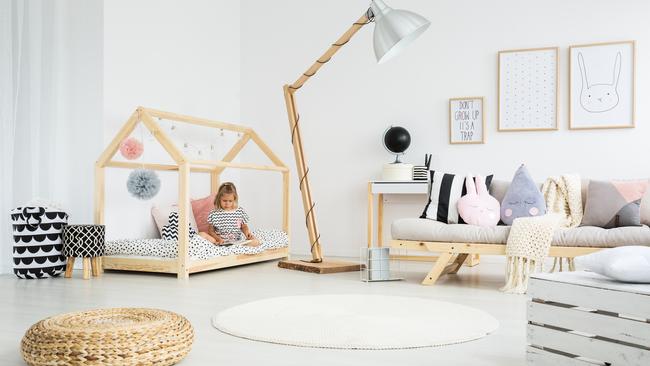
Property
Don't miss out on the headlines from Property. Followed categories will be added to My News.
Kids’ bedrooms are often full of bright colours and eye-popping toys – but is this the best environment for sleep?
If your child is having trouble drifting off at night, experts say some simple room changes and a consistent bedtime routine could be all you need to sort out those bedtime blues.
HEALTH IMPACT
Not getting enough quality sleep can cause all sorts of health issues – particularly when it comes to growing children.
Sleep Health Foundation spokeswoman Professor Harriet Hiscock from the Royal Children’s Hospital says lack of sleep can affect both a child’s emotional and physical wellbeing.
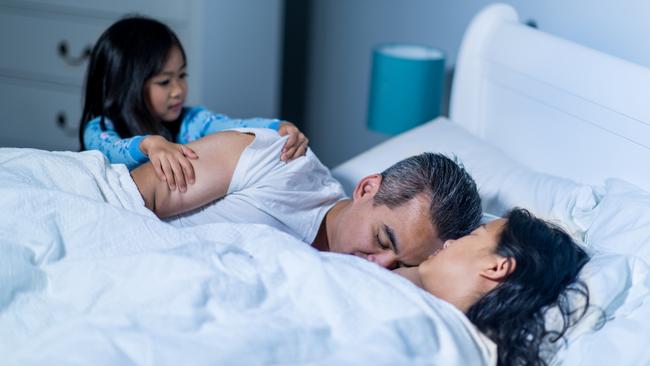
“We know there is an increased susceptibility to infection,” she says. “It particularly impacts their focus and concentration and learning in the classroom setting.”
“It can make it harder for them to regulate their emotions, they’re more likely to get upset and have emotional meltdowns or be aggressive or hyperactive.”
She says sleep deprivation has also been linked to weight gain – not only because tired kids tend to eat more to fill in energy gaps, but because lack of sleep causes us to produce more of the hormone ghrelin, which tells our brain we are hungry.
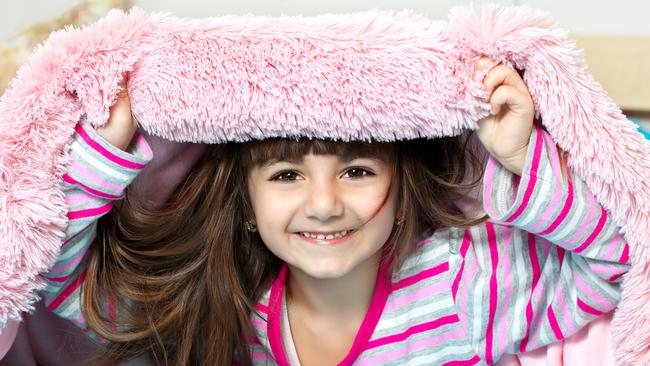
HOW MUCH SLEEP DO KIDS NEED?
The US Sleep Foundation recommends preschoolers sleep 10-13 hours and primary school aged kids sleep nine to 11 hours each night. Teenagers should aim for eight to 10 hours of sleep while adults can get away with seven.
But it’s not just duration that counts, says Prof Hiscock. Waking up multiple times a night can have more of an impact on health than getting a shorter amount of sleep – as can staying up late.
“Early to bed, early to rise is associated with better health and behavioural outcomes for kids, then late to bed, late to rise,” she says.
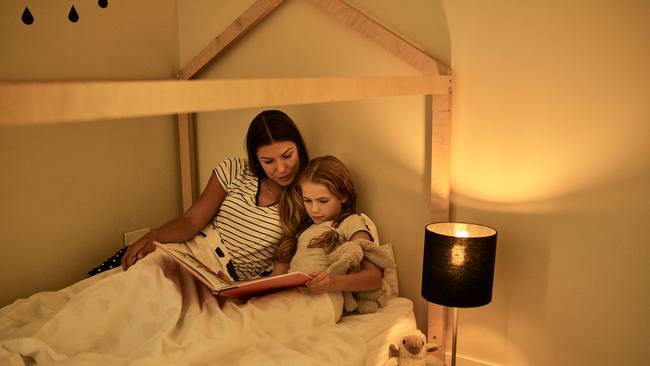
SIMPLE CHANGES
Sleep environment is an important factor in how well a child will sleep each night, with temperature, level of light and noise disturbances all impacting sleep quality, Prof Hiscock says.
Sleep expert and author of “Bear, Lion or Wolf: How Understanding Your Sleep Type Could Change Your Life,” Olivia Arezzolo says adding a red night light and some soothing music could help.
“It sets the scene for a calm, relaxing and peaceful evening,” she says.
White or pink noise is also thought to help sleep by blocking out other noises and helping the mind relax.
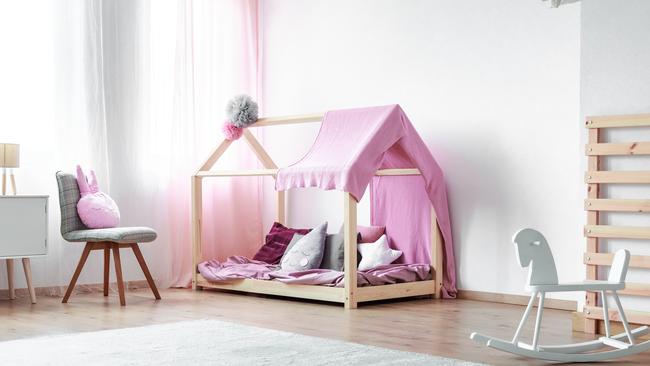
Property stylist and founder of Vault Interiors Justine Wilson says colour makes a big difference.
“Colour always affects moods, so it’s best if you can avoid bold garish primary colours or deep reds or oranges, blacks or browns,” she says. “Opt for either neutral tones, pastels or cool tones like greens and blues which can feel more calming generally.”
When it comes to furnishings, white is a practical choice that allows kids to grow into the space and can be accented with coloured rugs and artwork.
“Having a comfortable bed for your child is key,” she adds. “Ensuring you have a good mattress and nice linen is very important.”
To reduce overstimulation from the visual clutter of toys she recommends smart storage such as gas-lift beds, ottomans or bookshelves that you can fit baskets in for keeping toys.
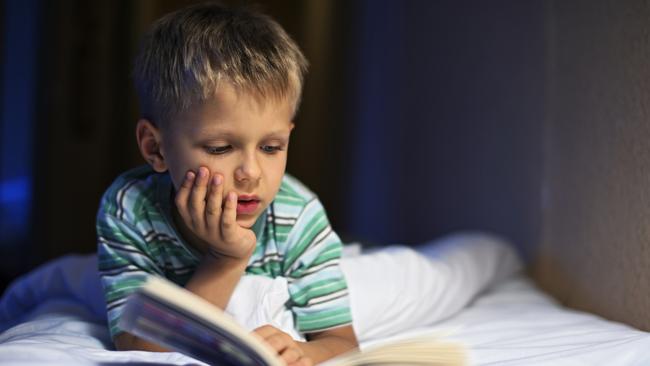
BEDTIME ROUTINE
Having a bedtime routine in and of itself has been shown to fix many childhood sleep problems, says Prof Hiscock.
The way kids fall asleep can have a massive impact on night-time waking, with those who depend on being rocked to sleep or holding someone’s hand, for instance, more likely to wake up calling out for that hand or rocking movement.
Prof Hiscock suggests building a bedtime routine around a dependable sequence of events, such as having a bath and getting into pyjamas after dinner, then brushing teeth and having a story before bed.

Ms Arezzolo says it’s important to take steps to calm the mind, such as dimming the lights, playing soft music and having a bath. A relaxing cup of camomile tea with honey or some quiet meditation together can also do wonders, she adds.
SCREENTIME BAN
One thing all three experts agree on is to remove any screens from the bedroom.
“Keeping screens out of the bedroom is really important because of the blue light, which blocks the brain making the sleep hormone, melatonin,” Prof Hiscock says.
For older kids, caffeine should also be avoided from 3pm onwards – meaning no Coke, or energy drinks after school.
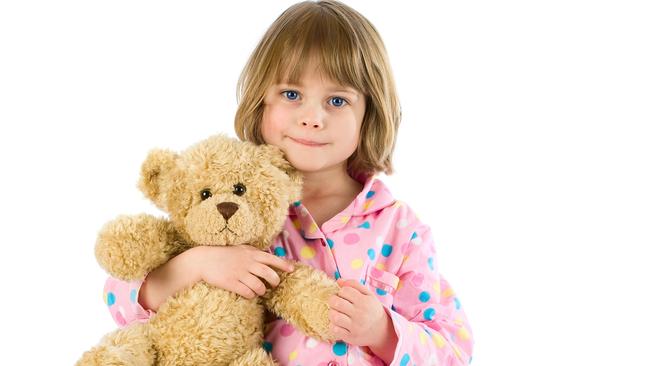
It also helps to close the bedroom curtains and keep things dark and quiet. Ms Wilson says plantation shutters or block out curtains are the best for keeping out external light.
If your child sleeps better with a bit of light, consider keeping night-lights, which often have sleep-disturbing LEDs, out of the child’s direct gaze or keeping the door open with a hall light on nearby, Prof Hiscock says.
Originally published as How to give your child a good night’s sleep




